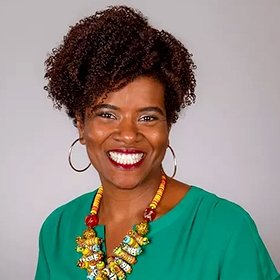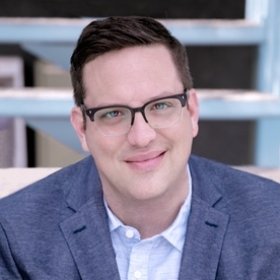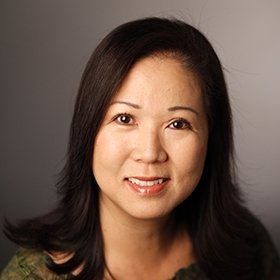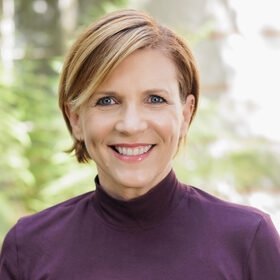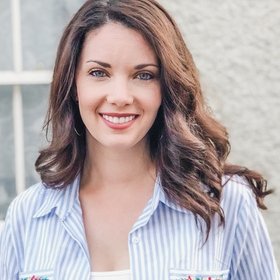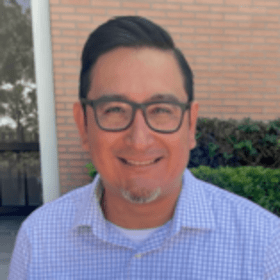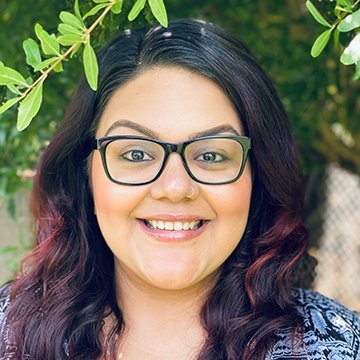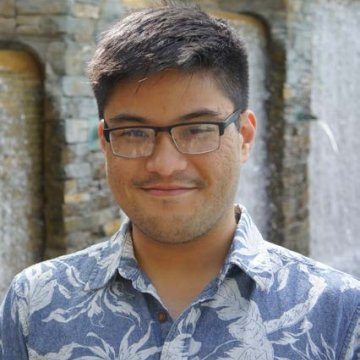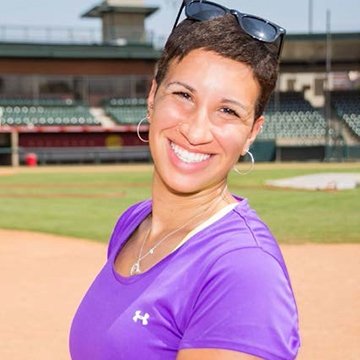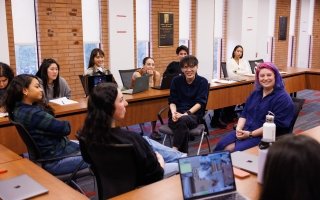
Master of Science in Marriage and Family Therapy
This program is designed for aspiring therapists who desire to work in public mental health clinics, schools, or private practice.
Mental health has historically been a service for privileged members of society. Prepare to turn the field upside down as a therapist with cultural humility. Critique and transform mental health systems and help your clients overcome barriers to their well-being and goals.
The Master of Science in Marriage and Family Therapy (MFT) program is offered in-person and online.
Program Overview
The Master of Science in Marriage and Family Therapy (MFT) program will prepare you to address issues facing families, couples, adults and children. These include relationship issues, emotional disorders, behavioral problems, mental illness and alcohol and substance abuse. After you complete the program and fulfill other state-mandated requirements, you will be eligible for the state of California’s Marriage and Family Therapy license.
Through this program, you will:
- Earn a degree from a program with a strong reputation among local agencies for desirable candidates.
- Become familiar with the best practices of recovery-oriented care through a curriculum that balances research and self-reflection.
- Join a tightly-knit community of students and gain unmatched opportunities for discussion and lifelong colleagues.
- Engage in a community that prioritizes equity for students and the communities they serve.
Curriculum
The MFT program meets the requirements established by the California Board of Behavioral Sciences for licensure as a Marriage and Family Therapist. As a clinical training program, the curriculum follows a fixed course sequence and students complete the program as a cohort. The program’s courses will help you to gain and apply knowledge in all relevant aspects of the field, from addiction to trauma.
The curriculum focuses on three broad themes:
| Therapy skills | Sharpen your skills as a therapist through self-reflection, classroom roleplay and supervised experience in real-world settings. Receive feedback from professors and peers. |
| Cultural sensitivity with a social justice lens | Identify and address the cultural contexts that shape you and your future clients to understand the impact of these factors on the relationship between therapist and clients. |
| Research-supported interventions | Become a skilled consumer of professional literature and evidence-based methods to address social, psychological, health, and sexual challenges. |
Fieldwork
To ensure your readiness for work with clients, you will take part in videotaped clinical practice in a classroom setting in the first year. Later, you will select a fieldwork placement site and receive supervision as you continue your practice in a real-world setting.
Learning Environment
Our program’s cohort model and small class sizes promote a collaborative rather than competitive learning environment. You will become part of the “beloved community” and build relationships that can be an enduring source of support throughout your career.
As a student, you will be expected to take part in discussions and write about how the concepts taught in the program apply to your own life. These discussions may include conversations about family history, relationship challenges and views on sexuality. You will take part in therapy-like practice sessions that may reveal your personal information. You always have the right to determine what information and how much you share in these exercises. In cases that do not involve harm to yourself or others, or child/elder abuse, faculty and other students will make an effort to keep information confidential.
Online Option
The MFT program is offered online (synchronous) or in-person. The program stands out in preparing versatile therapists for both in-person and telehealth settings. Our faculty are experienced in navigating complexities and exploring cultural and social cues (such as body language, facial expressions, and/or community contexts and environments) of clients in online settings. The curriculum, meticulously designed around these insights is to help students optimally navigate an online learning environment to deliver both in-person and online therapy effectively.
If you do not currently live in California or do not plan to move to California before the start of the program, you are not eligible to apply.
Licensure
In addition to completing coursework, you must fulfill a series of requirements to be eligible for California’s Marriage and Family Therapy license. These include:
- 3,000 hours of supervised clinical work
- Successful completion of both the California Law and Ethics exam and the clinical exam coordinated by the California Board of Behavioral Sciences
California requirements will meet most of the requirements for a similar license in many other states. However, if you plan to obtain a license in another state, identify whether the California MFT will satisfy the state’s requirements before beginning the program.
Scholarships
As an applicant, you will be automatically considered for limited, merit-based scholarships ranging from $15,000 to $30,000. There is no need to submit a separate application for these scholarships. The admission committee selects recipients based on academic achievement, demonstrated dedication to the USC Rossier mission and other distinguishing characteristics. Priority consideration is given to those who apply by the Regular Deadline. All USC Rossier scholarships are awarded at the time of admission.
View USC Rossier’s scholarship finder to identify other scholarships and funding opportunities. You do not have to be admitted to apply to these scholarships. Carefully note the scholarship application deadlines, which may occur before the final program application deadline.
Financial Aid
The USC Office of Student Financial Aid provides information regarding various types of financial aid and financing options.
To be considered for financial aid, you must apply for the FAFSA. After you apply, the financial aid office will determine your financial need and inform you of the federal or private loans that are available to you.
Career Outcomes
- Public mental health agencies
- School-based mental health
- Community mental health
- Residential treatment facilities including specialty practices in substance abuse, eating disorders, domestic violence and trauma
- Private practice
- Teaching
- Doctoral degree
- Author
Program Details
Degree Awarded
Estimated Length
Full time: 24 months
Units
Program Cost
$2,467 per unit (estimated)
Modality
- On Campus
- Online
Next Deadline
March 15, 2026
Start Date
July 1, 2026
Class Times
On Campus
Mondays, Tuesdays, or Wednesdays in the afternoon and evenings: 4:00p.m. to 6:45p.m. & 7:00p.m. to 9:45p.m. Pacific Time
*Summer classes start as early as 11:30a.m., but most typically 2:00p.m. Pacific Time and after
Online
Mondays, Tuesdays, or Wednesdays 1:00p.m. to 3:30p.m. and 4:00p.m. to 6:30p.m. Pacific Time
*Summer classes start as early as 11:30a.m., but most typically 2:00p.m. Pacific Time and after
Take the Next Step
Faculty
Learn from leading professors and top practitioners who will foster your professional growth both inside and outside the classroom.
Program Outcomes
of MFT alums said their USC Rossier education prepared them to be more effective in their career
of MFT alumni said their studies at USC Rossier prepared them well for future employment
Less than 16% of MFT alumni took more than six months to find a job after graduating from USC Rossier
of MFT students pass their Clinical BBS Exams, compared with a typical 70% pass rate
From Our Alumni
News and Insights
Program Contact
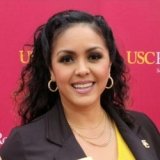
Aiddee Tellez, M.Ed.
Assistant Director, Office of Admission and Scholarships

Request More Information
Connect with us to receive more information about this program and reminders about upcoming events and application deadlines.
Privacy Policy: USC Rossier School of Education will never share or sell your personal information.

